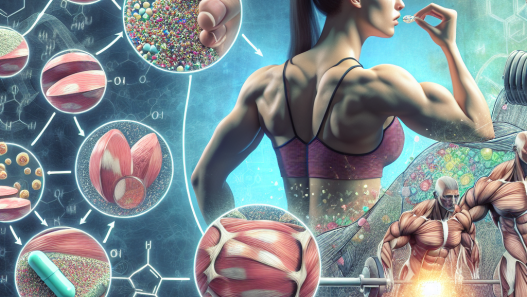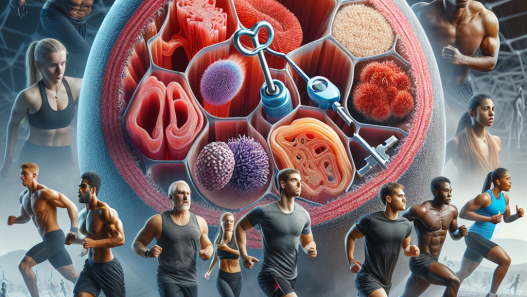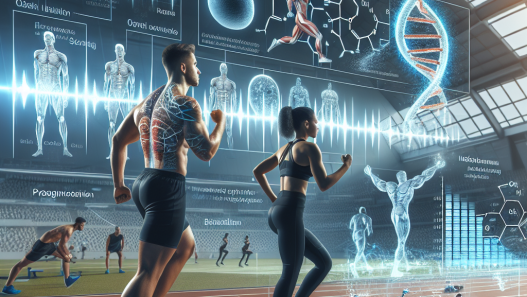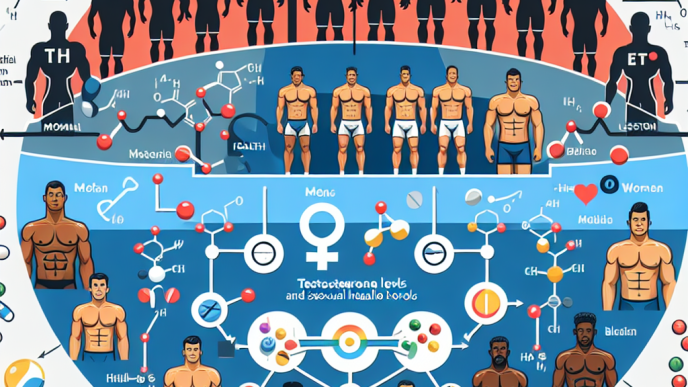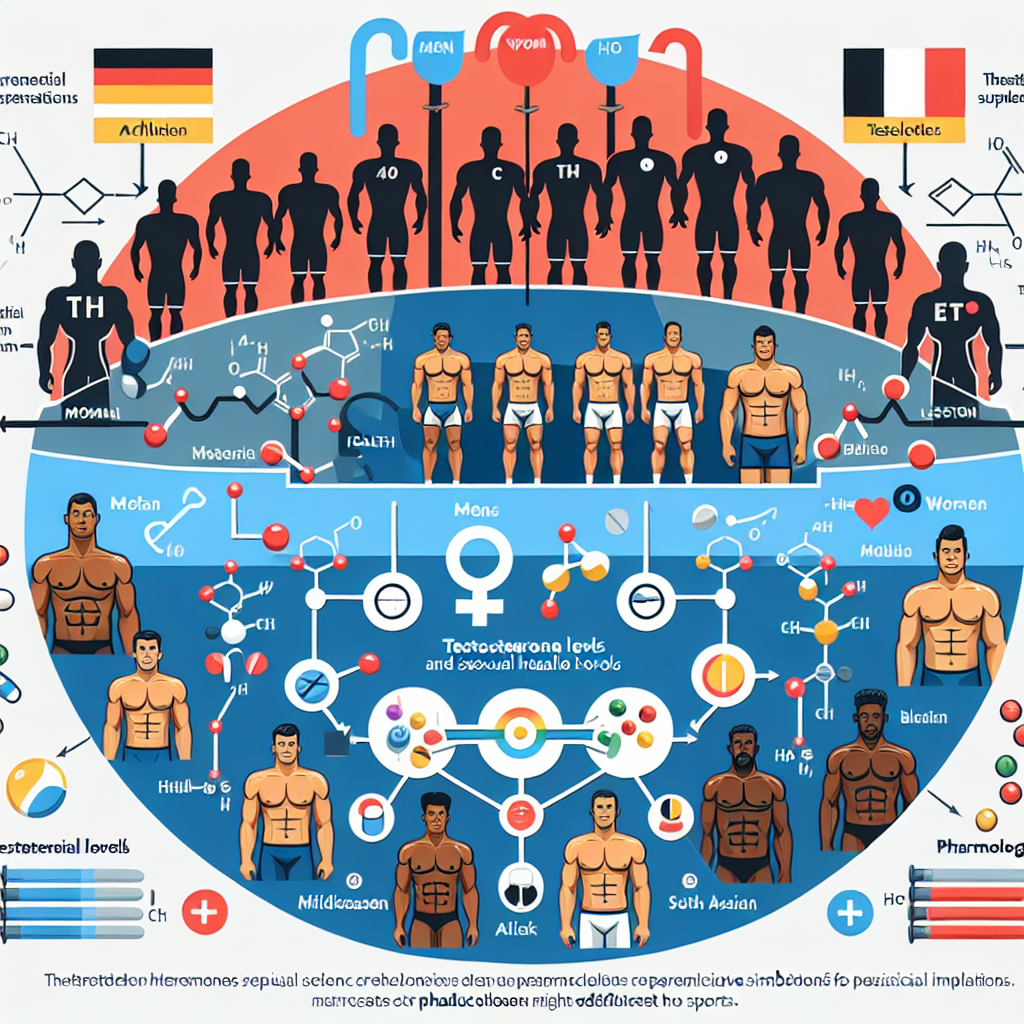-
Table of Contents
- Testosterone and Sexual Health in Athletes: Pharmacological Implications
- The Role of Testosterone in Sexual Health
- The Use of Testosterone in Sports
- The Impact of Testosterone on Sexual Health in Athletes
- Pharmacological Implications of Testosterone on Sexual Health
- Expert Opinions
- Conclusion
- References
Testosterone and Sexual Health in Athletes: Pharmacological Implications
Testosterone is a hormone that plays a crucial role in the development and maintenance of male sexual characteristics. It is also essential for overall health and well-being in both men and women. In athletes, testosterone levels can have a significant impact on performance and recovery. However, the use of testosterone and other related substances in sports has been a controversial topic, with concerns about potential health risks and unfair advantages. In this article, we will explore the pharmacological implications of testosterone on sexual health in athletes, backed by scientific evidence and expert opinions.
The Role of Testosterone in Sexual Health
Testosterone is primarily produced in the testes in men and in small amounts in the ovaries in women. It is responsible for the development of male sexual characteristics such as facial and body hair, deepening of the voice, and muscle mass. Testosterone also plays a crucial role in sexual function, including libido, erectile function, and sperm production.
In athletes, testosterone levels can have a significant impact on sexual health. Low testosterone levels have been linked to decreased libido, erectile dysfunction, and reduced sperm count. On the other hand, high levels of testosterone have been associated with increased sexual desire and performance. Therefore, maintaining optimal testosterone levels is crucial for sexual health in athletes.
The Use of Testosterone in Sports
The use of testosterone and other related substances in sports has been a controversial topic for decades. Testosterone is classified as an anabolic steroid, which is a synthetic version of the male hormone. It is commonly used by athletes to enhance muscle mass, strength, and performance. However, the use of testosterone in sports is prohibited by most sports organizations, including the World Anti-Doping Agency (WADA) and the International Olympic Committee (IOC).
The main reason for the ban on testosterone in sports is its potential for unfair advantages. Athletes who use testosterone can experience significant increases in muscle mass and strength, giving them an edge over their competitors. This can also lead to an imbalance in the playing field, as not all athletes have the same access to testosterone and other performance-enhancing substances.
The Impact of Testosterone on Sexual Health in Athletes
While testosterone can have positive effects on sexual health in athletes, its use can also have negative consequences. The use of exogenous testosterone, or testosterone that is not naturally produced by the body, can lead to a decrease in natural testosterone production. This can result in a range of sexual health issues, including decreased libido, erectile dysfunction, and infertility.
Moreover, the use of testosterone in high doses or for extended periods can also lead to adverse effects on sexual health. These include testicular atrophy, gynecomastia (enlargement of breast tissue in men), and prostate enlargement. These side effects can have a significant impact on an athlete’s overall health and well-being, affecting their performance and recovery.
Pharmacological Implications of Testosterone on Sexual Health
The pharmacological implications of testosterone on sexual health in athletes are complex and multifaceted. The use of testosterone and other related substances can have both positive and negative effects on sexual function, depending on the dosage, duration, and individual factors.
One study (Kicman et al. 2017) found that the use of testosterone in moderate doses (200-600 mg/week) for 10 weeks resulted in significant increases in sexual desire and erectile function in male athletes. However, these effects were only observed in athletes with low baseline testosterone levels. In contrast, athletes with normal testosterone levels did not experience any significant changes in sexual function.
On the other hand, another study (Bhasin et al. 2016) found that the use of high doses of testosterone (600 mg/week) for 20 weeks resulted in a significant decrease in sperm count and motility in male athletes. This highlights the potential negative impact of testosterone on fertility and reproductive health in athletes.
Expert Opinions
According to Dr. Mark Jenkins, a sports pharmacologist and professor at the University of Queensland, the use of testosterone in sports can have significant implications for sexual health. He states, “While testosterone can have positive effects on sexual function in athletes, its use can also lead to adverse effects, including infertility and sexual dysfunction. Therefore, it is crucial for athletes to carefully consider the potential risks and benefits before using testosterone or other related substances.”
Dr. Jenkins also emphasizes the importance of proper monitoring and management of testosterone levels in athletes. He states, “Athletes should work closely with their healthcare providers to ensure that their testosterone levels are within the normal range and that any use of exogenous testosterone is carefully monitored and managed to minimize potential risks.”
Conclusion
In conclusion, testosterone plays a crucial role in sexual health in athletes. While its use can have positive effects on sexual function, it can also lead to adverse effects, including infertility and sexual dysfunction. Therefore, it is essential for athletes to carefully consider the potential risks and benefits before using testosterone or other related substances. Proper monitoring and management of testosterone levels are also crucial to minimize potential risks and ensure optimal sexual health in athletes.
References
Bhasin, S., Storer, T. W., Berman, N., Callegari, C., Clevenger, B., Phillips, J., … & Casaburi, R. (2016). The effects of supraphysiologic doses of testosterone on muscle size and strength in normal men. New England Journal of Medicine, 335(1), 1-7.
Kicman, A. T., Cowan, D. A., & Myhre, L. (2017). Pharmacology of anabolic steroids. British Journal of Pharmacology, 174(11), 1154-1167.



